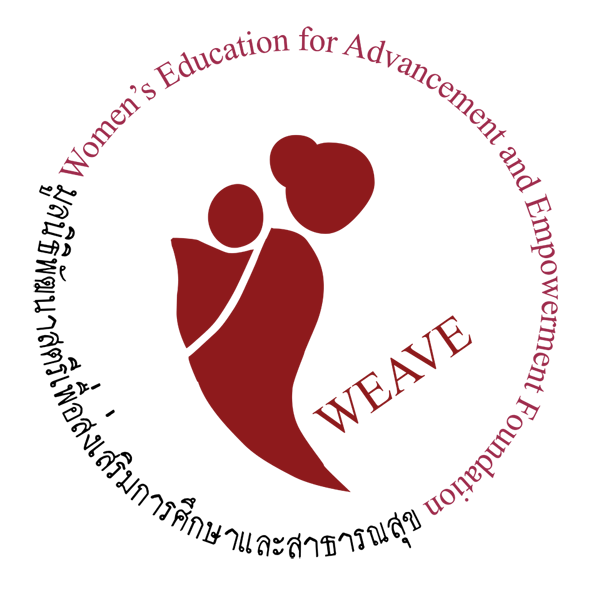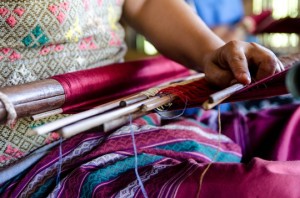Back home in her village in Karen State, Burma, Naw Wah May Paw sold rice and curry at the roadside to make money for her family. But her livelihood and safety were threatened when the Burmese military began attacking nearby villages. She endured the constant fear and threat, until an attack occurred close to her home. She and her family had to flee.
The trek to safety was perilous, as they crossed the river separating northwestern Thailand from Burma. They were fortunate to arrange a truck to pick them up on the Thai side, taking her whole family, including her nine siblings and four children.
Although safe for the time being, life in a refugee camp was far from being an exciting new start. “I can’t go everywhere (I want),” she said, referring to restriction of movement placed on refugees in Thai camps.
In Umpiem Mai Camp, where she has lived since 1999, she and the other 4,000 refugees there have very few options for livelihoods inside the camps. They are eager to make money for their families, yet unless they are one of the lucky few to get jobs with aid agencies working inside the camps, there is nothing available.
Adding to this, under Thai government policy refugees are not legally entitled to work outside the camps. Those who find ways to leave the camps for the day to work on nearby Thai farms do so at their own risk. Exploitation is common for these day laborers- legal wages are not always respected by land owners or tenants and refugees found outside the camps are vulnerable to harassment and arrest.
This creates a vicious cycle as displaced persons want to provide for their families, yet are not allowed to have jobs and must rely on international aid agencies for provisions. This aid covers only the most immediate relief needs and is not guaranteed long term.
The cycle has the further negative impact of not only denying refugees the human right to livelihoods, but also eroding their independence and sense of self worth. These emotions are piled on to the trauma and powerlessness of displacement.
Despite all of these risks, some refugees still take them, emphasizing their need for meaningful work and self-sufficiency. “There is no other work to do,” said Naw Wah May Paw.
Throughout its 21 years of existence, WEAVE has sought to empower women through the encouragement of meaningful work that leads to economic self-sufficiency. WEAVE’s founders recognized an opportunity to help displaced women from Burma and other marginalized women in northern Thailand. When founders were introduced to beautiful handicrafts women made in their homes, they saw an opportunity to help women generate income through fair trade.
This opportunity became the Income Generation Project (IGP). Launched in 1996, it sought various ways to support women through capacity building and economic literacy. WEAVE also trains women leaders in each of the three camps where it runs the project, so they are empowered to do capacity building with other women and build a community of artisans.
Naw Wah May Paw already had a talent for embroidery, but she didn’t have the resources nor distribution channels to make best use of them.
Now, her work as a self-employed producer means organizing her own working hours, depending on her family’s schedule and how much money she wants to earn that month She said, “I use (the money) for children’s clothes or curry and meat.” The food supplements the basic camp rations she receives.
Work for economic self-sufficiency is a fundamental human right. While all who lack this right suffer, women and children are most affected. WEAVE believes that improving market access for these underserved artisans will raise income levels, reduce income variability, foster job creation and, ultimately, facilitate sustained economic development.
With IGP’s capacity development and income generation opportunities, Naw Wah May Paw and other women can once again create a livelihood and begin to support themselves and their families on their own.
About WEAVE (Women’s Education for Advancement and Empowerment)
Founded in 1990, WEAVE is a non-profit organization that helps and supports the needs of marginalized women along the Thai-Burma border. WEAVE advances the status of women and children to become socially, economically and politically empowered. Through programs for education and capacity development, WEAVE’s goal is to elevate women and children from poverty and vulnerability, to self-sufficiency and hope. www.weave-women.org
Names and some other identifying details have been changed to protect identities.
(By Sarah Matsushita)


